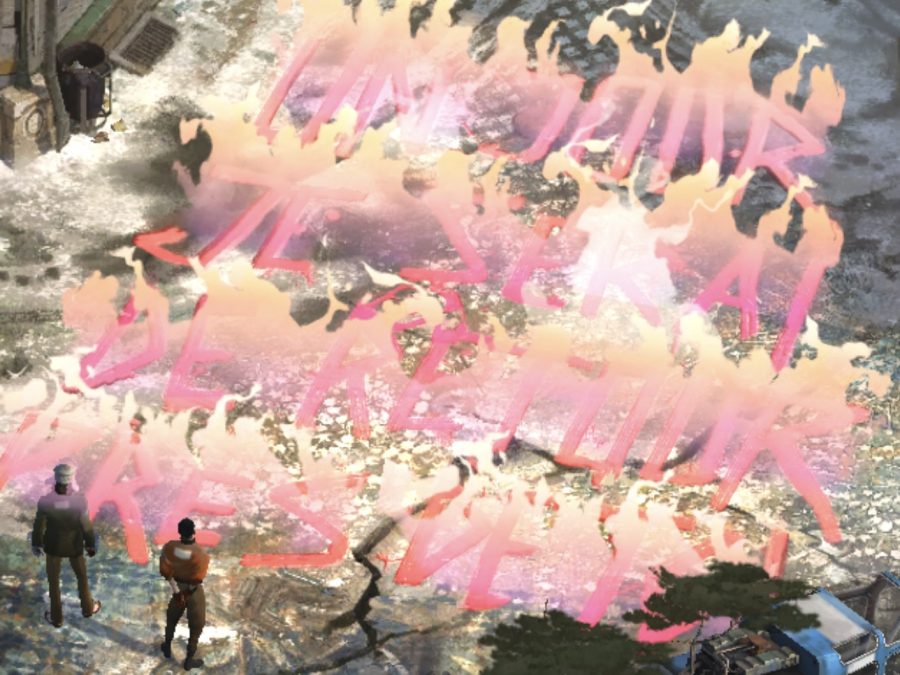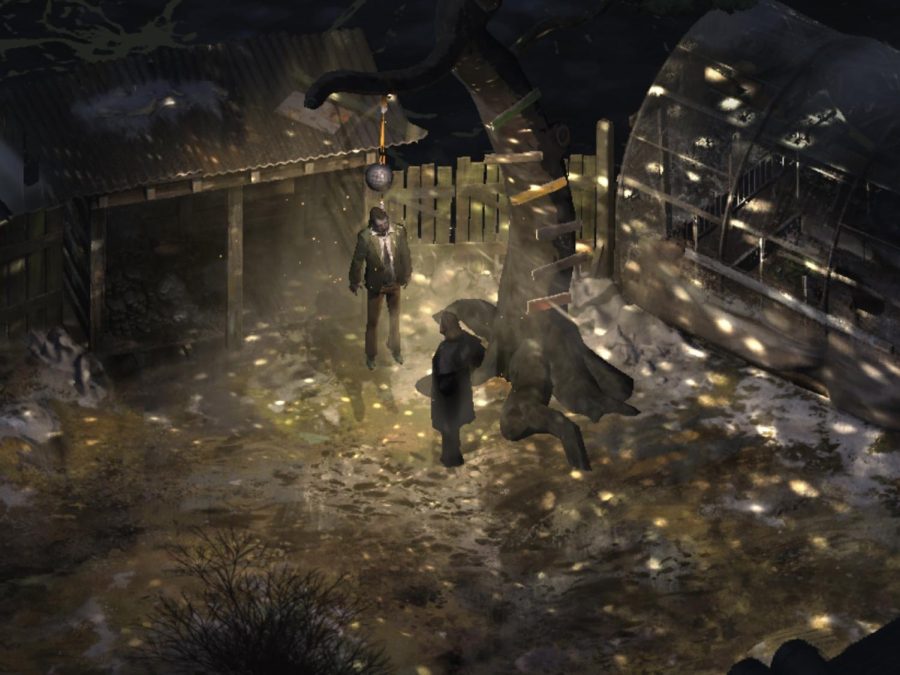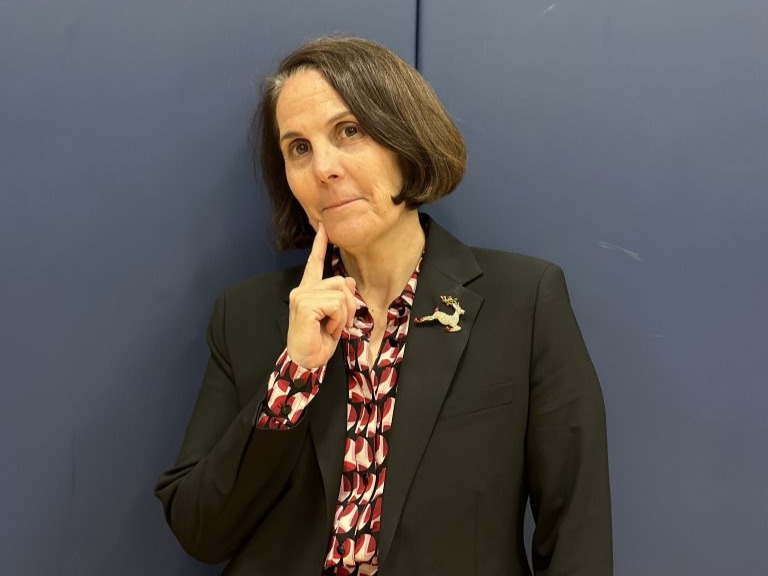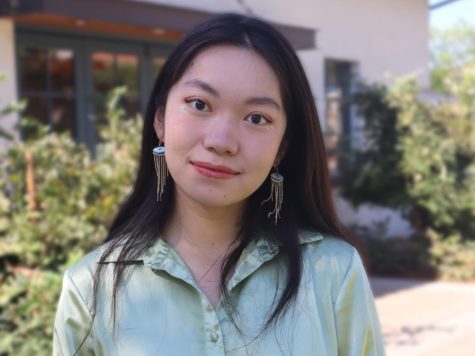“We’d like to thank all the great people that came before us: Ilya Repin, Vladimir Mayakovsky, Viktor Tsoi, and Marx and Engels for providing us the political education.” The acceptance speech by the developers of Disco Elysium, the role-playing game (RPG) that won Game of the Year at The Game Awards, left me in shock. Amazed by the developers’ unequivocal support of communism in Western mainstream culture, I rushed to download the game and found myself immersed in the beautiful, apocalyptic city of Revachol and the bizarre internal dialogues of a depressed cop.
Disco Elysium is truly a story-focused RPG, characterized by its richly layered, intricate narrative.
“Other games say they are story-focused, but they still have combat and side games that force you to spend hours fighting random monsters in a sewer,” said Yoyo Meng (‘23), Webb’s video game savant and Disco Elysium’s fervent fan. “But Disco Elysium doesn’t have anything to muddle or digress from the story.”
In Disco Elysium, players control an unnamed cop who has lost all of his memories, roaming through the watercolor-painted, derelict streets to carry out three main tasks: personally, the protagonist seeks to recover his memory and identity while dealing with substance abuse and a breakup; professionally, he works on solving a murder case involving the dockworkers’ strike and conglomerate mercenaries; politically, he tries to find his place in the sociopolitical tensions of Revachol — a hotbed of class conflict, historical remnants, and nascent communism and fascism.
Together, the three layers of the story create a feast for the emotions, investigative instincts, and partisan interests of players, all while the expressionist art style and literary talent evoke melancholy for the fate of humanity.
The lengthy storyline, however, makes playing the game somewhat tedious. My first playthrough took me over 30 hours. With a word count of over 1 million, Disco Elysium resembles a long novel, with rich details as its strength and the exhausting read through as its weakness. New players should plan breaks as they progress through the game and brace themselves for the large amount of text.
In terms of gameplay, Disco Elysium’s character progression system renders the game extremely personalized.
“To me, the biggest highlight of the game is the 24-skill system along with the voiced dialogues,” Yoyo said. “It allows you to create a specific character that is truly unique and built upon, like how a real person experiences growth.”
As players complete tasks and interact with characters, they earn experience points and allocate them to improve the protagonist’s 24 skills, creating a character that is tailored to their playstyle. While the “authority” skill might tell you to interrogate someone with a cop-style cold stare, the “empathy” skill would notice details in their body language and suggest a gentler approach. The “visual calculus” skill recreates the crime scene from footprints and bullet holes, and the “shivers” skill brings you a message from the wind. The skills could then increase probabilities of passing checks in certain dialogues through dice rolls, which determines the plot of the story.
Another standout feature of Disco Elysium is its open-world structure. Players are free to explore the game’s complex world at their own pace, accepting numerous side quests, discovering hidden areas, and most importantly, conversing with a wide variety of interesting characters. You can argue with a lorry driver about racism; borrow a graffiti artist’s paintbrush to create your own masterpiece; negotiate with a union boss; trick a light-bending billionaire into funding your business idea; stand up for socialism against a fanatic royalist; and even search for mythical creatures with pseudo zoologists. Among these countless interactions and dialogues arises my favorite mechanism of the game — the political alignment system.
The political alignment system in Disco Elysium is notable for its nuanced approach. Rather than offering a simplistic “good vs. evil” narrative, the game explores the complexities and contradictions of various political ideologies and attacks all of them with humor and veracity.
“What I look forward to the most is Disco Elysium’s overt political messages,” said Sebastian Hoffman (‘23), Yoyo’s friend who is increasingly interested in the game. “Yoyo told me since freshman year that you can choose what kind of politics your character has and imposes on the world, and I think that’s incredibly interesting to play around with, especially in an interactive medium like a video game.”
The player’s political alignment affects their relationships with the four main camps — communists, moralists, fascists, and ultraliberals — as well as the larger narrative arcs of the game.
“The political vision quests respond to your choices in a direct way: based on your dialogue options, you could be a fascist, a communist, or an ultraliberal getting mad money,” Yoyo said. “I did the moralist political vision — the game hates moralists, we all hate moralists — but the side quest was really well written and related to the fate of the world, with a sad yet hopeful ending. I’ve never played the fascist side quest, but I heard it’s good too.”
In my own playthrough, after clicking on three options that resembled “dismantle the free market,” an orb appeared on my protagonist’s head inviting me to build “BIG COMMUNISM” with snarky remarks about its previous failures. As I rolled up my sleeves to join the underground “infra-materialist” study group, I felt both attacked and seen as I read satires of Marxism’s doomed praxis and built the Tatlin’s Tower once more with my over-caffeinated comrades.
The political alignment feature is central to the game’s worldview. Disco Elysium’s Estonian socialist developers designed Revachol, a city that buried her revolutionary past beneath the current imperial rule, to be a mixture of France and post-soviet East European nations. Factions and ideologies vie for power and influence amid the gloomy mist of the port city, where child labor, sex work, and drugs reign supreme under neoliberal economy’s fatal grip.
No wonder that, in one of the game’s peak moments of theatricality, the protagonist lit the words “ONE DAY I WILL RETURN TO YOUR SIDE,” painted by the young communist muralist, on fire. Keen on the unfinished historical task of the proletariat, the developers invited the spectre of communism back to the class-war-ridden Revachol, expressing a deep desire for a better future.
While the game has a political core, Disco Elysium offers everyone, politically invested or not, an immersive experience.
“It’s about politics and the decay of the world, but it’s also about yourself, the past, and love,” Yoyo said. “On the Disco Elysium subreddit, a lot of people say they have a drinking problem and appreciate how this game is relatable and helps them see their struggles through a third-person perspective; some people struggling with marriage or breakups see it differently; someone actively engaged in politics would see it in another way, as well as someone playing this game while reading existentialism.”
The game contains multitudes and intricacies, embodied in its expertly crafted writing, making it accessible for everyone to enjoy.
“This game is really made for everyone to experience, which is why the publishers made it in the first place; they believe that nobody reads a book anymore, so why not make a video game,” Yoyo said.






![All members of the Webb Robotics Winter season teams taking a group photo. Of note is Team 359, pictured in the middle row. “It was super exciting to get the win and have the chance to go to regionals [robotics competition]” Max Lan (‘25) said. From left to right: Max Lan (‘25), Jerry Hu (‘26), David Lui (‘25), Jake Hui (’25), Boyang Li (‘25), bottom Jonathan Li (’25), Tyler Liu (‘25)](https://webbcanyonchronicle.com/wp-content/uploads/2025/03/Screenshot-2025-03-10-at-2.41.38 PM.png)









